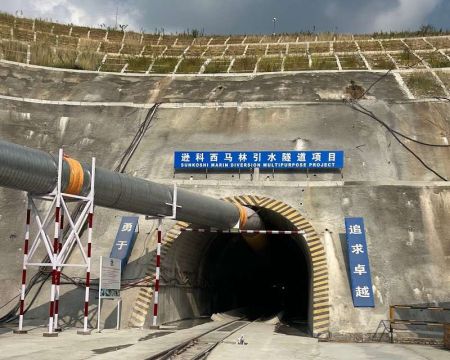The following article represents Dr Devendra Raj Panday’s research-based paper presented at a symposium titled “Fiscal Federalism in Nepal†in August 2009 in Kathmandu. The extract is printed here with his consent.
Â
The studies on fiscal and financial federalism concentrate on how financial and monetary institutions’ functions might be arranged and a mechanism for coherent policy making and monitoring established for the state to produce expected outputs. It involves the assigning of spending, taxing and borrowing powers between the centre and the other tiers of government and the focus of responsibility and accountability in fiscal management. In many ways, it is an act of political decision and bargaining – in the course of finalising the constitution and making yearly decisions especially on taxation, revenue sharing and allocation of grants by the centre for various purposes. In all this, efficiency and equity, often in conflict with each other, become issues of major concern. In order to do the needful, the national economy has to run efficiently, produce growth and provide stability that is necessary for broader development. At the same time, the aggregate growth must not create or sustain imbalances, vertically and horizontally. It means that further continuation of centre within the periphery syndromes in governance is not acceptable from both economic and political standpoints. The discrepancies in economic and social status of various regional or provincial economies must be narrowed down with the ‘marginal benefits’ of growth going disproportionately to the disadvantaged and economically and socially excluded people across the country. There are several ways in which fiscal efficiency balanced well with equity considerations can be pursued.
Â
First, allowing ‘independent fiscal regime’ for the provinces should not dilute the common market character of the federation. Simultaneously, it should also be kept in mind that the free flow of goods and services and investment across the provinces can result in favour of better-equipped regions that may already be relatively better off than others. In theory, there should be economic convergence of different regions under free trade with the mobility of factors as well as goods and services. But we know from Nepal’s experience as a player in the international economy as to how difficult it is for a least developed country (or a region within a country) to compete with better endowed, resourceful and experienced economies. Less developed provinces in the federation deserve the same treatment politically, economically and morally as historically, Nepal as a least developed nation has demanded internationally, including in SAARC mechanisms.
Â
Second, there has to be an understanding and a political consensus on the degree of competition and the spirit of cooperation to be pursued among the constituent units of the federation. The neo-liberal economic approaches sometimes display contradictory positions in this respect. On the one hand, there is the market preservation argument which expects the federation to work in harmony and have the states produce and trade goods without any barriers that would endanger the national market’s efficient working. On the other, there is a view that there should be constitutional guarantees against regulating inter-state flow of goods and services, to perhaps avoid the kind of situation in India where there is no harmony in some taxes levied in the states and on their policies concerning inter-state movement of goods and services. Meanwhile, the liberal ideology also illustrates the idea of ‘competitive governments’ and argues that the states must compete with one another in providing incentives to attract mobile capital and other factors into their territory to punish the laggards. The preference for competitive federalism where the states may compete among themselves to maximise their own welfare at the cost of other provinces may reflect the ‘beggar thy neighbour’ strategy of yesteryears. This is a critical point since, like in the overall design of economic liberalisation, only the relatively prosperous states would benefit from competitive economic and fiscal policies. In post-1990 India where the states are encouraged to compete with each other for attracting investments into their territory, some states have done well, but at the cost of growing inter-state disparities and regional imbalances. Nepal can ill afford a similar practice. It would also run counter to the social objective of federalism which is to reduce disparities and imbalances, not to increase them. Once again, purposeful pragmatism calls for an approach that would optimise people’s welfare at the provincial and local levels and encourage entrepreneurship and investment all around without the states jeopardising each other’s interests and the overall interest of the national economy.
Â
Third, in the practical task of expenditure and revenue assignment, efficiency consideration is implicit in the widely held opinion that before considering taxation, assignment of expenditures among different tiers of government should be taken care of. The idea in this ‘money to follow work’ principle is that taxation and borrowing powers of the states and assumedly, the centre’s should not be independent of specific obligations they undertake for discharging public functions and the volume of expenditures required for that purpose. The idea is to ensure that all states are empowered to provide comparable public services regardless of their revenue capacities. Beyond this, the expenditure assignment is expected to be guided by economic considerations whereby the central as well as provincial and local governments provide services whose benefits accrue to the residents within its jurisdiction and where the costs of the provisions incurred can be internalised within that jurisdiction. To put it simply, the responsibility for the provision – where the benefits from a given service are distributed nation-wide such as the country’s defence, the Supreme Court or the national highway system – lies with the centre. If the benefit incidence of a given service is limited to primary and secondary education or water supply and sanitation, the provision is best readied by provincial and local governments. The opportunity to save on transaction costs and the possibility of harnessing the economy of scale in fiscal operations are associated elements of the process.
Â
Fourth, in a developing country where both the expectations and the requirements of the people are high, assigning expenditures for the centre and the constituent states does not only mean slicing the existing budget into central and provincial items of expenditure and dividing tax revenue accordingly. It also means taking into account the responsibilities to deliver services that the people could not have earlier. It also means undertaking various development works for generating social goods that can be provided or ensured to finance them. The challenge will arise from policy matters and in the pursuit of related priorities. For agriculture, education and health among others, the centre may wish to promote certain norms and targets considered desirable from the national viewpoint. The states in charge of these assignments can have different ideas especially if the same political party or the coalition of parties is not in charge at the centre and specific states. The centre will have other concerns including those that are part of its international commitments. Such commitments can be about trade and environment as they can be about national and international human rights standards concerning the status of women, children, indigenous people etc. And there are commitments about Millennium Development Goals (MDGs) with further complications arising from the possibility that many of the related functions will come under the purview of provincial governments. Consequently, expenditure assignment also becomes responsibility and accountability assignment against which the availability of matching revenue needs to be guaranteed. The centre has an obligation to address these issues as it negotiates the tax sharing arrangements and, particularly, the conditional and unconditional grants’ transfers from the centre to the provinces.
Â
Fifth, there are four areas of concern that should guide the process on taxation. One, every jurisdiction needs adequate tax revenue to finance the assigned and necessary expenditures. To make up for the shortfall in one jurisdiction, the better endowed among others should have the incentive to engage in revenue sharing. Two, efficiency consideration will be as important in the assignment of taxing power as in spending, more so due to its direct impact on the working of the common market. The incentives and disincentives in the tax structure on a given jurisdiction, especially for the mobile factors and the consumers of public services are critical. Taxation assignment requires appropriate study of tax bases, possible overlapping of incidence, the spill-over effects and the population that stands to benefit from the spending facilitated by such taxes. Three, the distribution of taxing authority among the different tiers of government has a significant bearing on equity. The residence based taxes on income and property may be appropriate for the provincial and local governments, but any tax with significant redistributive power, such as progressive income tax becomes suitable only for the national government to enforce national priorities on equity and broader development. Four, administrative efficiency including transaction cost considerations will also guide the assignment of taxing power. On this basis, some taxes become suitable even for sub-provincial or local governments for eventual sharing vertically where local conditions and administrative set up can help administer it better.
Â
Sixth, apart from the question of specific taxes to be assigned to the centre and the provinces, a decision about the collecting agency is also important. Some taxes available for meeting public expenditures may be collected and used by only one jurisdiction. One such example could be the property tax levied and collected by local governments. Such tax base can also be shared between the local and provincial governments. Some taxes may be collected in one jurisdiction and used by all. For example, income tax can be collected by the centre and shared with others. In all these cases, the tax base, its incidence and the administrative cost of collection will be important considerations. From a political perspective, the perceived or pursued autonomy of the provinces vis-a-vis the centre will play its part. There is a potential conflict in the way one asserts ‘states power’ and the compromises needed in the interest of efficiency as well as equity in the interest of national bonding.
Â
Seventh, as in Nepal’s case of federalism by ‘devolution’ and not ‘aggregation’, the central government retains its basic strength and power which applies to fiscal arrangements too. The centre must have absolute power to collect taxes from the domains of individual provinces and use the funds collected to meet expenditures it deems important across the country. In almost all the important federal countries, the share of the central government in total public revenue (collected by the centre, the provinces and the local governments) is above 50 per cent. In Nepal, the economic reality – the likely wide variations in the economic status and revenue bases of different regions and the social imperative of redistribution – will undoubtedly vest the centre with considerable authority and responsibility in this respect.
Â
Finally, besides redistribution, it is critical that the central government be adequately empowered to undertake stabilisation functions, on the one hand, and monitor the economic and distribution effects of inter-jurisdiction competition, on the other. It is prudent and practical to let the centre have exclusive authority over stabilisation function and use its power of the purse in a way where the provincial governments have an incentive to follow the national priorities even as they are bound to come into conflict with priorities established by them in their provincial interests.
Â
(Dr Panday retired from government service as Secretary of Finance and became the Finance Minister in the first government formed after the restoration of democracy in 1991.)






















